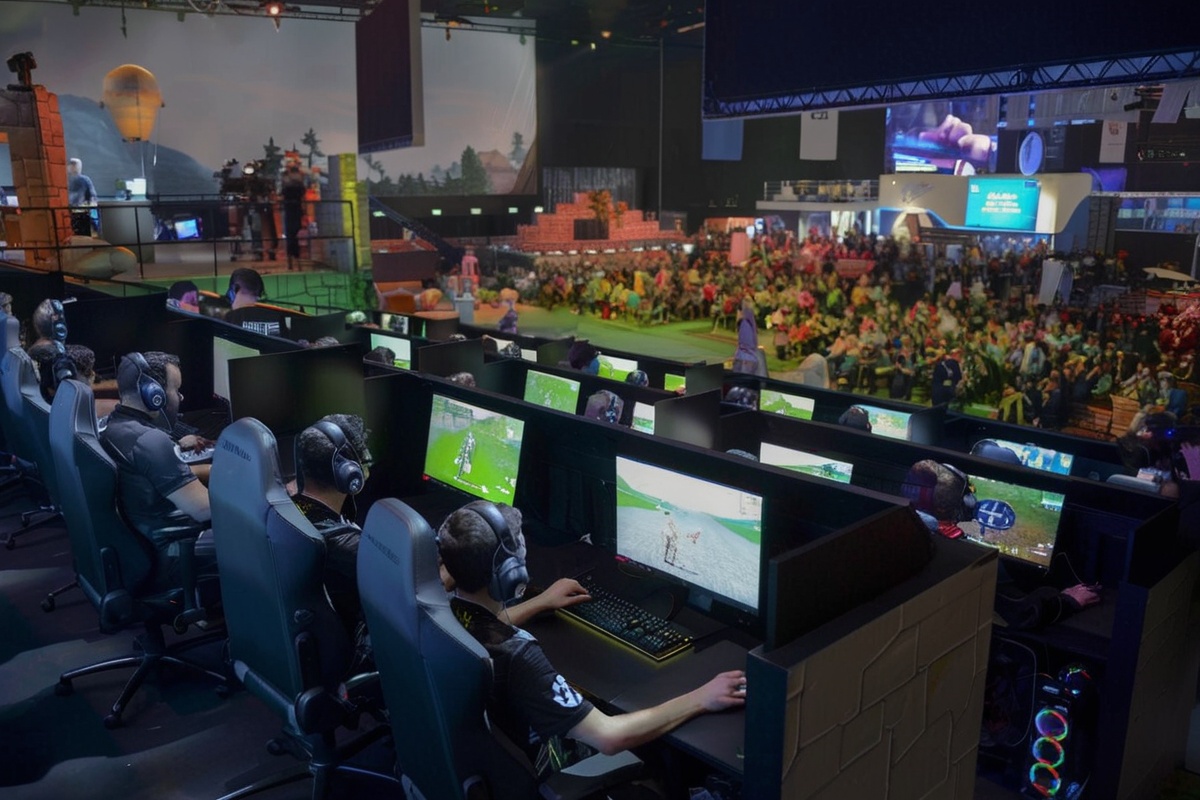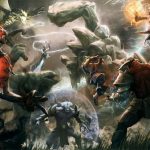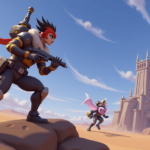Epic Games’ Fortnite-Based Roblox Competitor Faces Uphill Battle
Epic Games, the publisher behind the wildly successful Fortnite, launched an ambitious initiative two years ago to challenge industry leader Roblox in the booming user-generated games market. However, recent data suggests that Epic’s venture still has significant ground to cover before it can truly compete with Roblox’s dominance.
The Fortnite Creator Economy
Epic introduced tools allowing third parties to create their own games within the Fortnite universe using the Unreal Editor for Fortnite. Similar to Roblox’s model, creators receive a share of in-game sales as compensation for their efforts. This move aimed to tap into the growing creator economy and expand Fortnite’s ecosystem beyond its battle royale roots.
Impressive Numbers, But Room for Growth
On Wednesday, Epic released an update on the progress of its creator program:
- Users played creator-made Fortnite games for over 5.2 billion hours in 2024
- This accounts for more than a third of total Fortnite playtime
- Epic paid out $352 million to 70,000 creators last year
- Seven creators earned over $10 million each
While these figures are noteworthy, industry analysts and game developers suggest that Epic still faces challenges in catching up to Roblox’s established platform.
Roblox’s Market Dominance
Roblox continues to lead the user-generated content space in gaming. Its platform offers intuitive tools for creators to build a wide variety of experiences, from simple obstacle courses to complex role-playing games. In 2023, Roblox distributed $741 million to its creator community, more than double Epic’s 2024 payout.
Key Advantages of Roblox
- Longer-established ecosystem
- More diverse range of user-created content
- Stronger brand association with user-generated games
Challenges Facing Epic’s Creator Program
Game developers and analysts have identified several hurdles Epic must overcome:
Technology and Product Gap
Joe Ferencz, CEO of Gamefam Inc., which creates content for both platforms, noted that Epic faces “a huge technology gap and a product gap that they are currently working to close.” The Unreal Editor for Fortnite, while powerful, lacks some of the accessibility and flexibility offered by Roblox’s tools.
Growth and Adoption
User-generated games on Fortnite saw a 15% increase in players last year. However, Roblox’s player base grew by approximately 24% in the same period, according to analyst estimates.
Competition from Epic’s Own Content
Data from Fortnite.gg, an independent tracking website, reveals that Epic’s in-house creations still dominate the platform:
- The top five third-party developers have each attracted less than 4% of the audience of Epic’s own games
- Seven of the top ten most popular games on Epic’s platform are company-made
Limited Creative Freedom
Developers report restrictions in the types of games they can create within Fortnite. Michael Ha, an independent game developer, explained, “Fortnite players come to play Fortnite. They’re not necessarily there to explore the whole ecosystem Epic is making.”
Epic’s Vision and Future Plans
Despite these challenges, Epic remains committed to its creator ecosystem. Saxs Persson, an executive vice president at Epic, acknowledged the company’s current position: “It is very true from a platform perspective that we’re digging ourselves out of a hole.”
Epic aims to transition from being primarily a game company to an ecosystem company. Persson stated their goal is for external creators to generate “the majority of the energy in the system.”
Upcoming Improvements
Epic plans to release new features soon to address developer concerns and expand creative possibilities within Fortnite. These updates may help close the gap with Roblox and attract more creators to the platform.
The Broader Metaverse Competition
Epic’s efforts with Fortnite creators align with its larger ambitions in the metaverse space. The company faces competition not only from Roblox but also from tech giants like Meta and other game engine providers like Unity.
As the concept of interconnected virtual worlds gains traction, Epic’s success in fostering a thriving creator ecosystem within Fortnite could position it as a key player in the evolving metaverse landscape.
Conclusion
While Epic Games has made significant strides in building a creator economy within Fortnite, it still faces an uphill battle to truly compete with Roblox’s established platform. The company’s commitment to improving its tools and expanding creative possibilities suggests that the race for dominance in user-generated content is far from over. As both platforms continue to evolve, creators and players alike stand to benefit from increased innovation and opportunities in the digital space.






